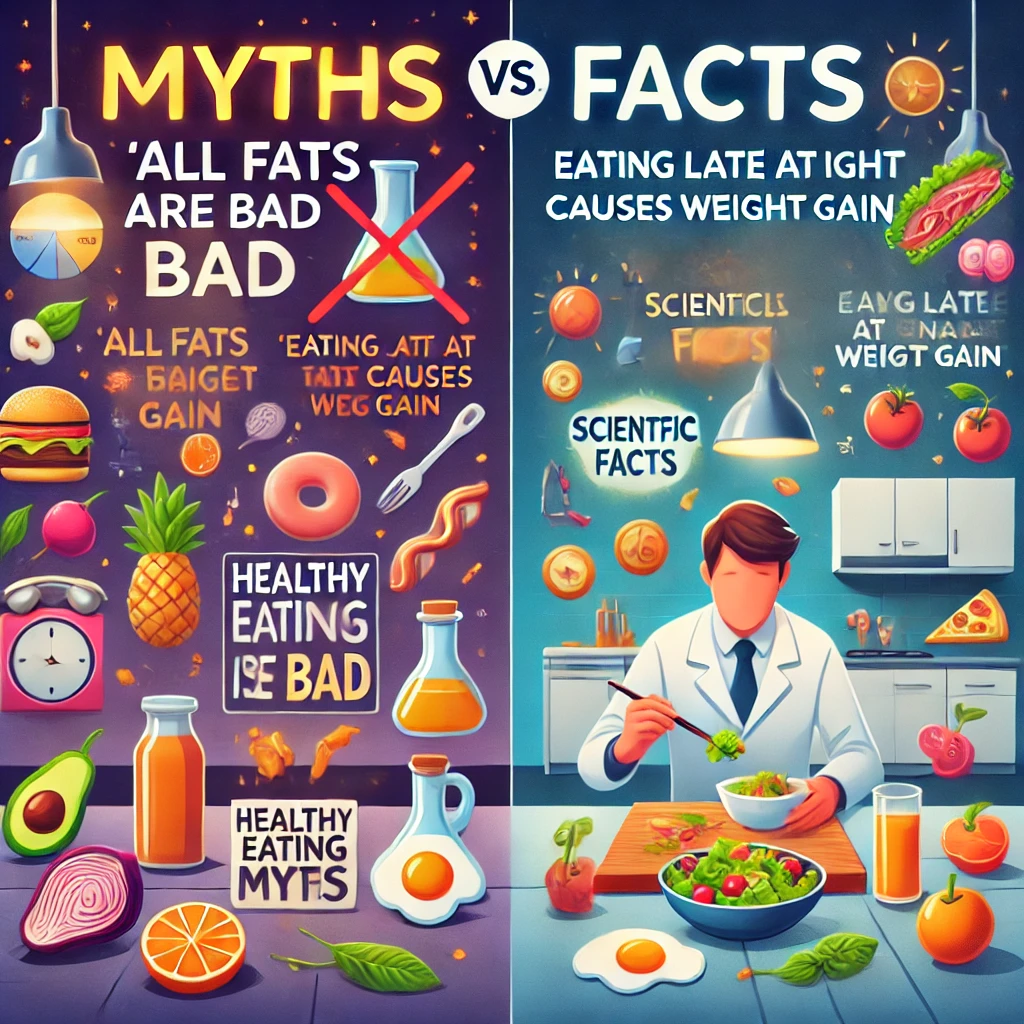Understanding the Basics of Healthy Eating
Healthy eating is an essential component of overall well-being, yet it is often misunderstood. At its core, healthy eating encompasses a balanced diet, which refers to the intake of a variety of foods in the appropriate proportions. This balance is crucial as it ensures that the body receives all the necessary nutrients to function optimally. The foundation of a balanced diet lies within two key categories of nutrients: macronutrients and micronutrients.
Macronutrients—carbohydrates, proteins, and fats—are required in larger amounts and serve various roles in the body. Carbohydrates are the primary source of energy, proteins are vital for tissue repair and growth, while fats play a crucial role in hormone regulation and nutrient absorption. On the other hand, micronutrients, which include vitamins and minerals, are needed in smaller quantities but are equally important for maintaining health, supporting immune function, and preventing chronic diseases.
Portion control is another critical aspect of healthy eating. Understanding the appropriate serving sizes helps individuals manage their caloric intake, which is imperative for maintaining a healthy weight. Overeating, even healthy foods, can lead to excessive calorie consumption. Different food groups, including fruits, vegetables, whole grains, lean proteins, and healthy fats, contribute significantly to a nutritious diet. Prioritizing whole foods—those that are minimally processed and rich in natural nutrients—over processed options is essential for optimal health. Processed foods often contain added sugars, unhealthy fats, and preservatives that can adversely affect health.
In conclusion, grasping the basics of healthy eating, including the significance of a balanced diet, portion control, and the differences between whole and processed foods, helps lay the groundwork for further exploration into nutritional myths. By fostering a clearer understanding of these principles, individuals can make informed choices that align with their health goals.

Common Myths About Food and Nutrition
In the realm of food and nutrition, several misconceptions have gained popularity over time, often leading individuals to adopt unhealthy dietary habits. One prevalent myth is that carbohydrates are inherently bad for one’s health. While it is true that processed and refined carbohydrates, such as white bread and sugary snacks, can lead to weight gain and metabolic issues, whole grains and fibrous fruits are essential components of a balanced diet. Research indicates that complex carbohydrates provide the body with necessary energy and can improve digestion and heart health when consumed appropriately.
Another widespread belief is that all fats contribute to weight gain. This notion oversimplifies the role of dietary fats. In fact, research shows that healthy fats—such as those found in avocados, nuts, and olive oil—are crucial for maintaining overall health. They aid in nutrient absorption, hormone production, and provide the body with a source of long-lasting energy. It is essential to focus on the quality of fat consumed rather than avoiding them altogether.
Moreover, the idea that healthy eating is prohibitively expensive is a misconception that can deter individuals from making healthier food choices. While organic and specialty health foods can be costly, a healthy diet does not necessarily require a high budget. Seasonal fruits, vegetables, and whole foods are often available at lower prices, and meal planning can further minimize expenses. Studies suggest that prioritizing whole foods over processed items can lead to both a healthier diet and savings over time.
These myths about food and nutrition can be misleading and may prevent individuals from making informed choices. It is vital to rely on credible scientific evidence and expert opinions to debunk these inaccuracies. By understanding the complexities surrounding food and nutrition, individuals can foster a more balanced and satisfying dietary lifestyle.
The Impact of Misinformation on Healthy Eating Habits
In the contemporary landscape of dietary choices, misinformation poses a significant challenge to individuals aiming to adopt healthy eating habits. A plethora of diet fads and trends permeates public discourse, often leading people to make choices that diverge from science-based nutritional guidelines. Psychological factors play a crucial role in this process; for instance, the allure of quick-fix solutions can detract from the understanding that sustainable health benefits typically arise from consistent, informed dietary practices.
Social media exacerbates these issues by acting as a platform where unverified health claims are frequently endorsed. Influencers, while sometimes well-meaning, can propagate erroneous information surrounding food and nutrition. For example, the popularity of certain extreme dietary regimens is often fueled by eye-catching testimonials rather than scientific research. A study revealed that social media users are significantly influenced by celebrities and peers in their food choices, which can lead to the adoption of less nutritious habits and a disregard for balanced eating.
Moreover, the psychological aspect of misinformation cannot be overlooked. Cognitive biases, such as the confirmation bias, lead individuals to favor information that aligns with their pre-existing beliefs about food and diet. As a result, even well-researched data may be disregarded in favor of anecdotal evidence. This creates a cycle where misinformation is not only perpetuated but becomes increasingly entrenched within personal narratives surrounding diet and health. Ultimately, opting for unverified information over research-based nutrition can lead to detrimental eating patterns and long-term health consequences.
In light of these complexities, it is essential for individuals to critically evaluate the sources of their dietary information. Seeking evidence-based recommendations and consulting with registered dietitians or nutritionists can significantly improve one’s understanding of healthy eating. This approach encourages individuals to move beyond the allure of diet fads and instead embrace a more balanced and informed relationship with food.
Practical Tips to Foster Healthier Eating Choices
Integrating healthy eating habits into your daily routine can be simplified with a structured approach that emphasizes sustainability and versatility. One fundamental strategy is meal planning. By deducing what you will eat throughout the week, you can ensure that you incorporate a variety of fruits, vegetables, whole grains, and lean proteins. Make a shopping list based on your planned meals to avoid impulse purchases and stay focused on healthier foods.
Another valuable recommendation involves becoming proficient in reading food labels. Understanding nutritional information enables you to make informed choices regarding what you consume. Pay attention to serving sizes, calories, and ingredients, opting for options with fewer additives and saturated fats. Nutrition labels can serve as powerful tools to debunk myths about what constitutes healthy eating.
Experimenting with new recipes can renew your interest in healthy foods. Utilizing cooking methods such as baking, grilling, or sautéing can make a significant difference in how various foods taste. Incorporating spices and herbs creates diverse flavor profiles, breaking the monotony of your meals while also promoting beneficial dietary habits. Encourage family participation in meal preparation, transforming cooking into a shared activity that can also foster healthier choices.
Moreover, being mindful of marketing techniques is crucial. Food advertisements often mislead consumers into believing that unhealthy options are healthier due to high-profile endorsements or alluring packaging. Scrutinizing these claims and being vigilant about the products you buy empowers you to make better choices. Finally, adopt an approachable mindset towards nutrition; instead of viewing healthy eating as a restrictive diet, consider it a flexible lifestyle adjustment. This positive approach enables individuals to maintain these habits long-term, reinforcing the notion of healthy eating as an enjoyable journey rather than a fleeting phase.







There is apparently a bundle to know about this. I think you made some nice points in features also.